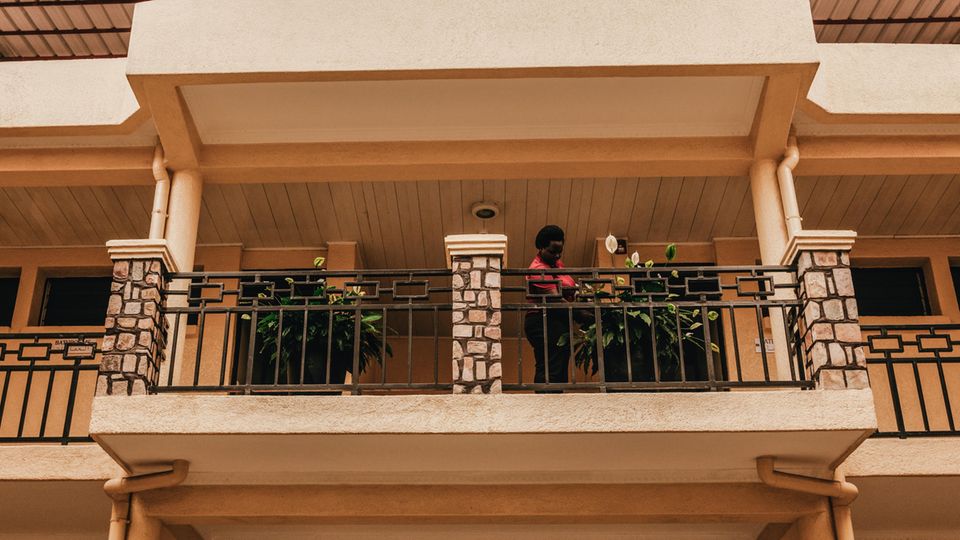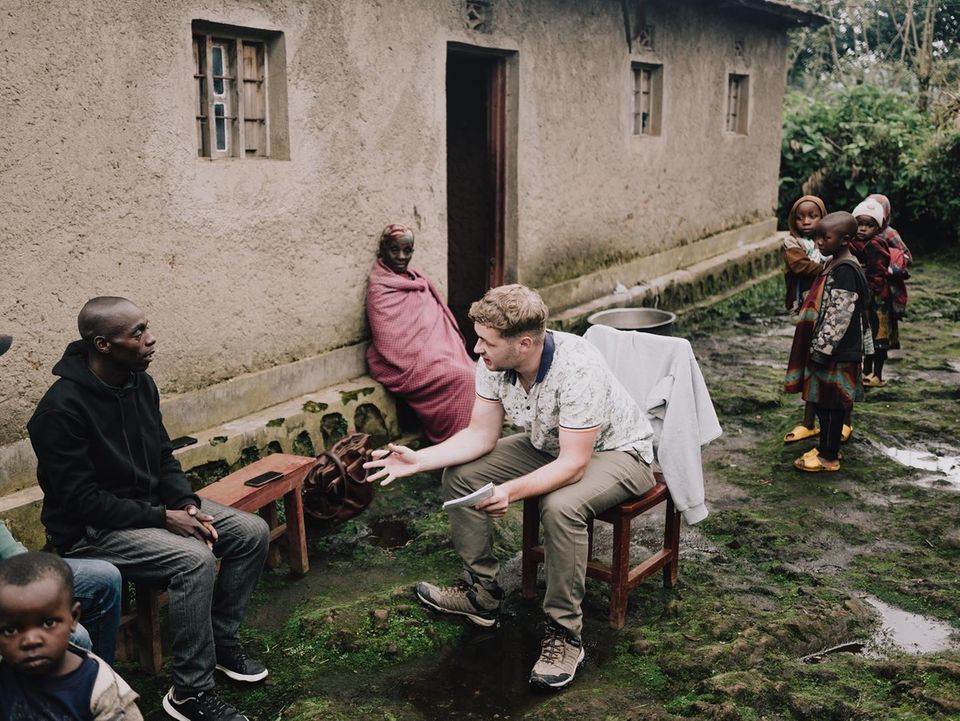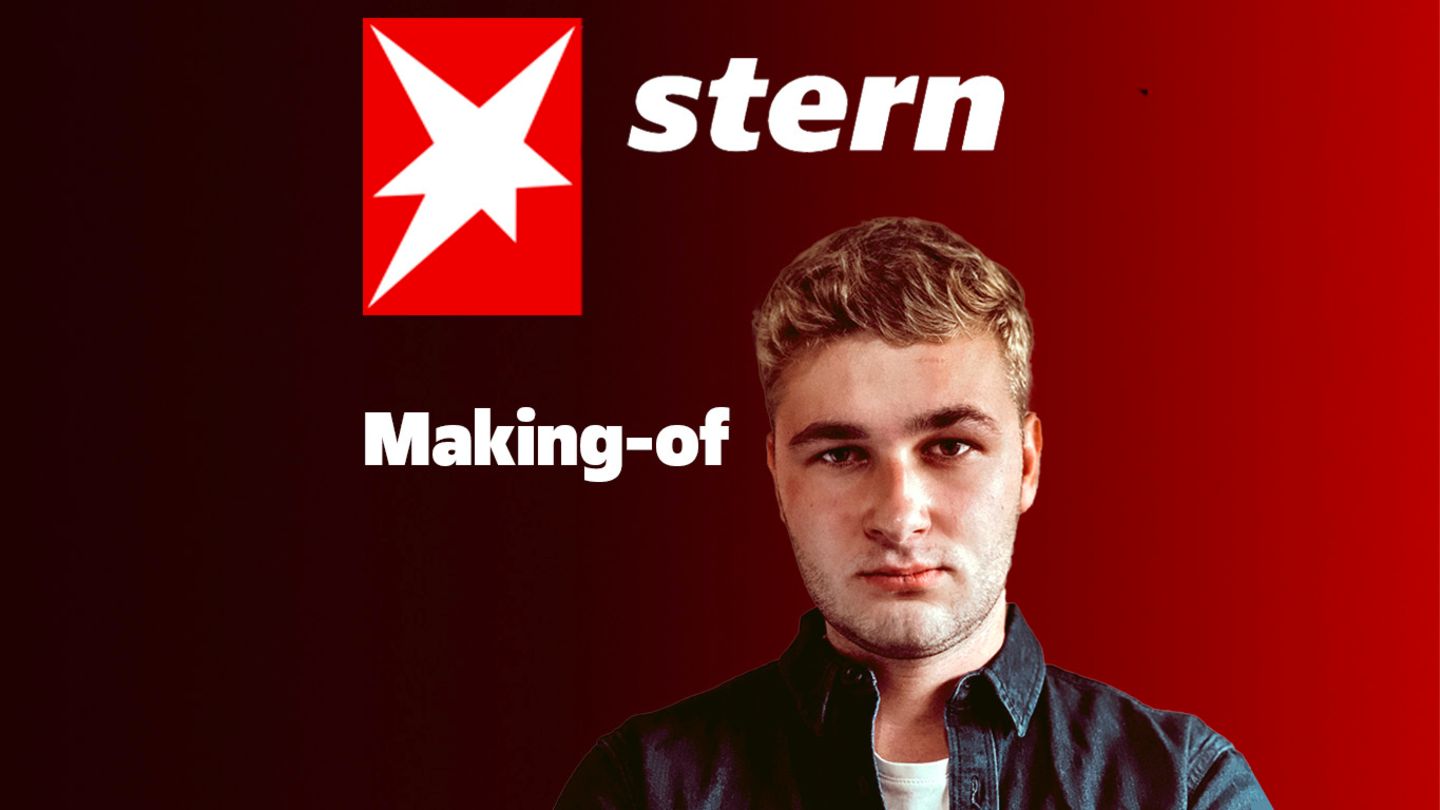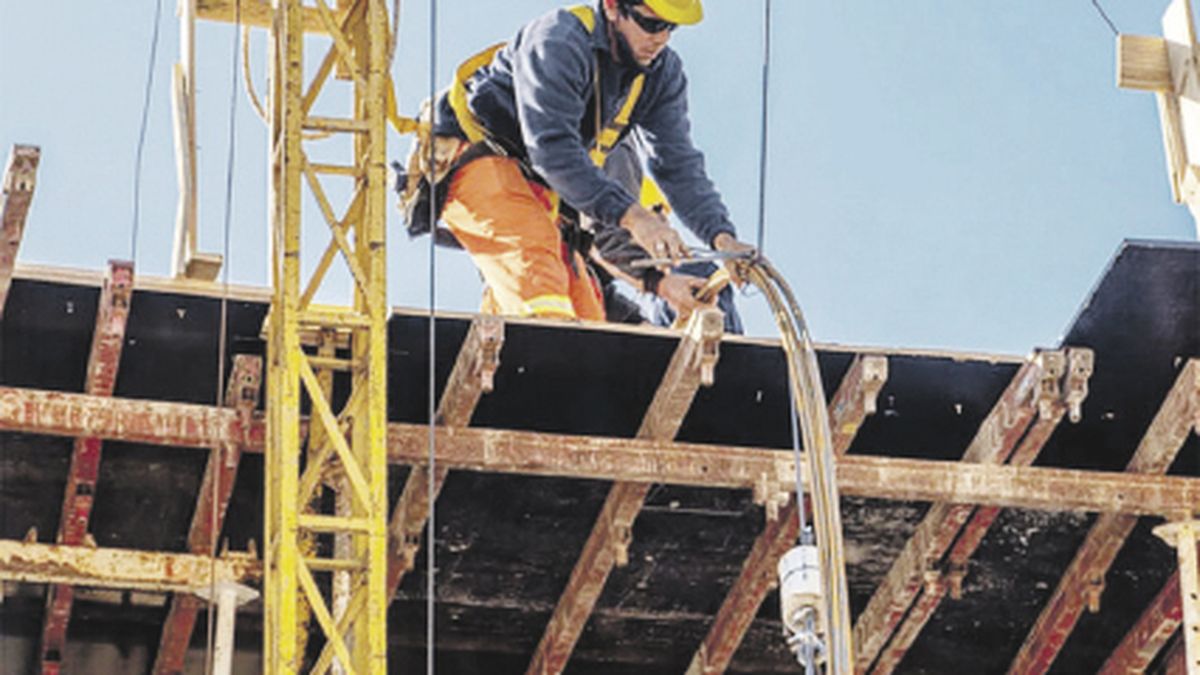Cute gorillas, not so cute repressive state: While tourists rave about Rwanda, the country is difficult terrain for reporters. A personal report.
It must be the most beautiful sunset of my life: a blood-orange circle pushes the clouds aside and slowly sinks behind a lush chain of hills. In front of me, Lake Kivu splashes against the shore. A trio of fishing boats, wiry like a wooden dragonfly, move through the water, accompanied by a low-flying cormorant. Birds of all colors sing their evening song while I sit on the veranda of a lodge, light a cigarette and sip a mojito. This is what Rwanda looks like in travel guides.
Two days later, the capital Kigali, a quiet side street. Victoire Ingabire’s front door is double-locked, and she has reinforced her property walls with barbed wire. I am standing in the garden of an enemy of the state. “Over there,” says the 55-year-old, pointing to a hill behind the house, “there is always a white car parked, watching me.”
Ingabire, a liberal critic of Rwanda’s long-time ruler Paul Kagame, has spent 16 years of her life in exile and eight years in prison. Her assistant was found strangled in a forest one day, her political coordinator stabbed to death at his workplace. She too fears for her life and can no longer go anywhere without government spies following her on scooters.
As I leave her house, I am photographed by the secret service. They are disguised – no joke – as a SIM card seller. When I film the woman in pink slippers back, she is holding her hand in front of her face.
For world travelers, Rwanda is pretty high on their “must-see” list. Cute gorillas, mystical volcanoes, a beautiful land of a thousand hills, a tourist’s dream. For opposition members and journalists, it’s a minefield. A place where you feel like you’re being followed at every turn. Even if you only spend ten days there, like I did.
Entering Rwanda? Complicated for reporters
Those who are undesirable are not allowed into the country in the first place. Clémentine de Montjoye, for example, an employee of “Human Rights Watch”, who was refused entry at Kigali airport a few weeks ago on the grounds that she was “not welcome in Rwanda”. Or Sally Hayden, the experienced Africa correspondent for the “Irish Times”, who was intercepted at the airport in Addis Ababa, Ethiopia, in April and prevented from flying on to Rwanda. I heard of many colleagues who were not granted media accreditation because they had stated critical issues as the reason for their trip.
I came to Rwanda under the pretext of a gorilla story. At the same time, however, I was researching the controversial refugee deal that Kagame had concluded with Great Britain. It looked like this, for example: In the “Hope Hostel”, the place where Rwanda wants to house people deported from Europe, I was greeted not only by the friendly, smiling hotel manager, but also by a nameless woman. After each of my questions, she took notes. She also took a photo of me in a moment when I was apparently unobserved.
Suspicious things happened on my phone
Kigali itself is a capital city that is in many respects quite un-African. There are no slums, no visible homelessness, no prostitution. President Kagame has simply banned these things. He has drug addicts, alcoholics, even street vendors taken away in police trucks and locks them up in places like the Iwawa rehabilitation center, an island of lepers, somewhere on the picture-book horizon of Lake Kivu.
What doesn’t fit isn’t made to fit. It’s simply thrown away in this world.

Britain wants to deport refugees to this hotel in Rwanda – now it has been empty for two years
01:24mins
My British photographer Hugh and I therefore agreed on a security measure: when we spoke about overly critical, non-gorilla-related things, we usually switched off our cell phones or held them in the wind. The Rwandan regime has been proven to have infected thousands of cell phones belonging to activists, journalists and dissidents with spy software. Suspicious things suddenly started happening on my device too: A recruiter from Tanzania called me. Strangers tried to log into one of my social media channels twice.
And then there was our local contact. Let’s call him Peter, his real name shouldn’t be used here. He told stories that seemed familiar to me. From books about Rwanda with titles like “Bad News – Last Journalists in a Dictatorship”. Peter had already been arrested several times by the government. For reporting on corruption and police violence. Or for publicly asking about a missing girlfriend who only reappeared after a year in prison. One of his relatives died in prison under mysterious circumstances. Peter, who provided us with access, background information and translations on site, is repeatedly attacked online by Kagame’s employees.

As time went on, I became a little paranoid, to say the least.
When I returned from my meeting with the opposition politician Ingabire, I kept looking in the rearview mirror for suspicious moped drivers wearing sunglasses and deliberately drove through a roundabout three times to make sure that no one was following me.
As I suffered what turned out to be the worst stomach contortion of my life, sweating my way through a night in a hotel in Kigali, for a brief, completely irrational moment, a thought shot into my already pounding head: “That’s it! Now they’ve got me!”
I want to come back. If Rwanda lets me
And when, at the end of this journey, after my luggage had already been thoroughly checked for explosives on the way to the airport, people were also turned away at the departure desk in front of me, I already thought I was in a bare listening room, under flickering neon tubes, in front of a grim regime henchman.
A few seconds later, the border official stamped my passport. I flew back home safely and eventually with my mind back on track. I want to come back. Probably more as a tourist. If Rwanda will let me.
Source: Stern
I have been working in the news industry for over 6 years, first as a reporter and now as an editor. I have covered politics extensively, and my work has appeared in major newspapers and online news outlets around the world. In addition to my writing, I also contribute regularly to 24 Hours World.




